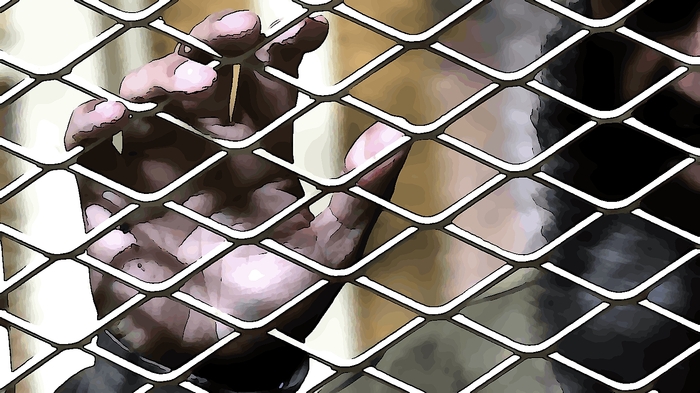
None of those conditions exists today, making it highly unlikely that President Donald Trump would be able to restart the much-maligned program even if he ordered it to happen.
And some of the program's original architects would strongly advise him against it anyway. John McLaughlin, deputy CIA director when the program was established and a fervent supporter of its value ever since, said flatly, "No," when asked whether rebooting it was a good idea. "This is not something you can do without legal support, congressional support and public support, and that support does not exist."
International uproar over revelations that the CIA was secretly holding high-ranking al-Qaida members, and torturing some of them, forced President George W. Bush to transfer them to the military prison at Guantanamo Bay, Cuba. The issue has remained so politically toxic that U.S. forces stopped capturing most top terrorists on the battlefield altogether and began killing them instead. Then-President Barack Obama increased the number of such targeted killings using drones, CIA paramilitary forces and the military's most secretive unit, the Joint Special Operations Command, or JSOC.
Today, U.S. forces have little contact with Islamic State prisoners, who are held in Iraq by Iraqi or Kurdish forces.
As a candidate, Trump linked his embrace of torture, which is prohibited under U.S. and international law, to his desire for retaliation and his fear of what he called radical Islamic terrorism. He said the Obama administration was failing to defeat the Islamic State because it was not tough enough.
Neither Trump nor his campaign have ever detailed his plan to defeat the Islamic State and al-Qaida.
"As far as I'm concerned, we have to fight fire with fire," Trump said in an interview this week with ABC News after he described the Islamic State's practice of beheading. But the president also said he would ultimately rely on the judgment of Defense Secretary James Mattis and CIA Director Mike Pompeo, both of whom have repudiated torture and waterboarding in particular. "And if they don't want to do it, it's 100 percent okay with me. Do I think it works?" he said, referring to waterboarding, "Absolutely."
Whether torture works in forcing terrorists to divulge information remains a contentious question, even after 10 years of debate. A lengthy Senate Intelligence Committee report determined that the CIA never proved it works, but rebuttals to that came from CIA officials involved with an interrogation program that used waterboarding and that has left many detainees mentally impaired.
Beyond the lack of consensus on that basic question, torture has been outlawed in the United States because of the lasting damage it can inflict on a country that holds itself up as a beacon of human rights and of the rule of law. The black sites were specifically created to get around the constraints imposed by U.S. law on the humane treatment of defendants who were in custody and awaiting trial or of prisoners of war who were held until the end of the conflict.
Many terrorism analysts say that the existence of CIA prisons, the use of torture and the military abuse of prisoners at Abu Ghraib prison in Iraq and Guantanamo Bay were potent recruitment tools for a new generation of terrorists. Most Americans and Europeans captured and beheaded by the Islamic State were photographed wearing orange uniforms similar to those worn by Guantanamo detainees.
The revelations of CIA prisons also prompted government investigations across Europe. The investigations unearthed the names, and eventually ended the careers, of officials in Poland, Italy, Lithuania and elsewhere cooperated in maintaining secret prisons or capturing and flying suspected terrorists through their countries' airspace.
An Italian court pursued cases against the CIA officers involved in the rendition kidnapping of an Egyptian imam off the streets of Milan and the transfer of the man to Cairo. A German prosecutor helped a German national prove that the CIA had wrongfully abducted him and sent him to a CIA prison in Afghanistan called the Salt Pit.
It is unlikely the United States could count on Europe's secret cooperation again to allow the transit or even flight rights for detainees moving to new CIA secret prisons, former CIA officials and others said.
"Other countries that cooperated with us in the past feel burned," said John Yoo, author of the original White House legal memos approving CIA interrogation methods that were later repudiated as torture. "They may feel they can't trust us anymore."
But Yoo predicted that recent terrorist attacks in France and Germany would make European nations more willing to cooperate again on extreme counterterrorism measures. "I think it's sensible for the president to reconsider" secret prisons and "to keep all options on the table."
Trump also said this week that he will order that more detainees be sent to the prison at Guantanamo Bay, which Obama had tried unsuccessfully to close. Forty-one prisoners remain there.
If Trump were unable to find foreign countries willing to host new secret prisons, he might try to use Guantanamo Bay, which originally hosted a small CIA secret prison. But it is likely that the Defense Department would vigorously fight against the move, as Defense Secretary Donald H. Rumsfeld had when Bush decided to send the remaining CIA captives there.
He fought the move, he wrote in his memoir, "Known and Unknown," because "I was convinced the military would be damaged further by allegations of detainee mistreatment if the CIA program became conflated with the Department of Defense's detention operations."
The biggest impediments to new CIA prisons, though, would come from CIA employees, many of whom feel unfairly blamed for a practice the Bush White House ordered and authorized, and from current U.S. law, which prohibits using anything other than the Army Field Manual to interrogate detainees, even terrorists. That law would have to be repealed.
Previously:
• 09/06/16 Intelligence community investigating covert Russian influence operations in the United States


 Contact The Editor
Contact The Editor
 Articles By This Author
Articles By This Author
